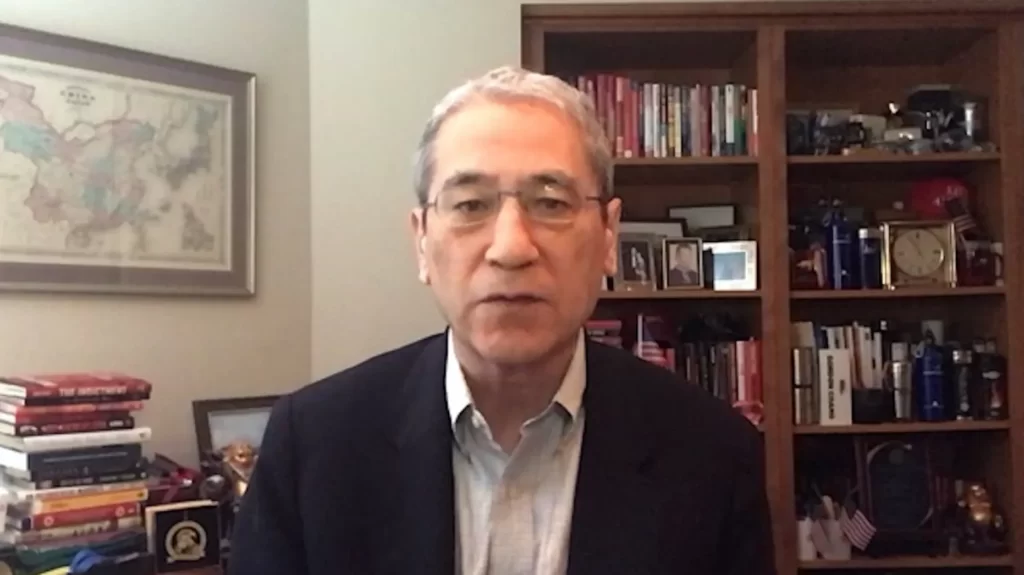July 2023, FedNow Central Banking Digital Currency rolls out.
World Economic Forum and World Health Organization are funded primarily by China’s CCP and Bill Gates.
COVID: (C)ertification (O)f (V)accination (ID)entification ..connect the dots..
Chinese palm payment technology brings CCP closer to ‘total social control’: Gordon Chang
Gordon Chang says Tencent’s new biometric palm payment technology brings the Chinese Communist Party one step closer to “total social control” of its citizens.

Chinese expert Gordan Chang warned about China conglomerate Tencent rolling out its biometric palm payment technology will bring the Chinese Communist Party (CCP) one step closer to “total social control” of its citizens.
“Xi Jinping is creating this totalitarian state, total social control, so this certainly helps them,” Chang told Fox News Digital. “People are resisting, but nonetheless, I think the Communist Party is essentially going to force people to adopt this.”
On May 21, Tencent’s WeChat Pay rolled out a new “Palm Pay” service allowing users to make transactions by scanning the palm of their hand. Recognition of a unique palm print triggers an automatic payment through the user’s WeChat account.
Currently, users who enroll in the palm-recognition service can pay for metro rides at station turnstiles in Beijing, but Tencent is planning to roll out the service in other settings including offices, campuses, retail outlets and restaurants across mainland China, according to South China Morning Post.
“This palm technology, biometric recognition, this just gives Beijing even more information about people in China,” Chang said. “The state is becoming more effective because it will actually force companies like Tencent to offer these biometric recognition systems and these companies will then try to get people to use them.”
“This is a regime initiative, it’s from the top down,” he added.
In 2020 former President Trump signed an executive order banning U.S. transactions with Tencent’s WeChat messaging app along with the Beijing-based ByteDance app, TikTok.
WeChat “automatically captures vast swaths of information from its users. This data collection threatens to allow the Chinese Communist Party access to Americans’ personal and proprietary information,” Trump said in the executive order. Shortly after taking office in 2021 President Biden revoked Trump’s ban on the apps.
“Every Chinese app should be banned in the U.S. because U.S. apps are banned in China,” Chang told Fox News Digital. “But also, the less contact we have with Chinese businesses, the better.”
According to a 2017 report by the Communist Party Network, 23% of Tencent’s workforce, or 7,915 employees, were CCP members, and those members took a leading role in the development of WeChat.
“In China, Xi Jinping has this doctrine of military-civil fusion,” Chang said. “We shouldn’t be thinking that there are state companies and private companies. We should be considering them all one company because that’s the way the Communist Party views them.”

In 2020, Amazon introduced a similar palm-scanning checkout technology which it has since expanded to dozens of Amazon Go and Whole Foods locations in the U.S. In March, Amazon announced it was partnering with Panera to incorporate the technology in its restaurants.
Related Article:
Amazon bringing age verification for alcohol purchases to Amazon One palm recognition technology
“Amazon is a private company, so it can offer these services and its customers may use them or may not use them,” Chang said. “But I don’t want the U.S. government to give incentives to companies to offer these services because this does have a real potential effect of abuse.”
“I just wouldn’t do it, I don’t care how convenient it is,” he added. “We’ve gone through too many scandals on the part of government and companies, and have witnessed too many data thefts by China and others, so the less data these companies have about me, the better.”
Source: Foxbusiness, Twitter
Also Read:
